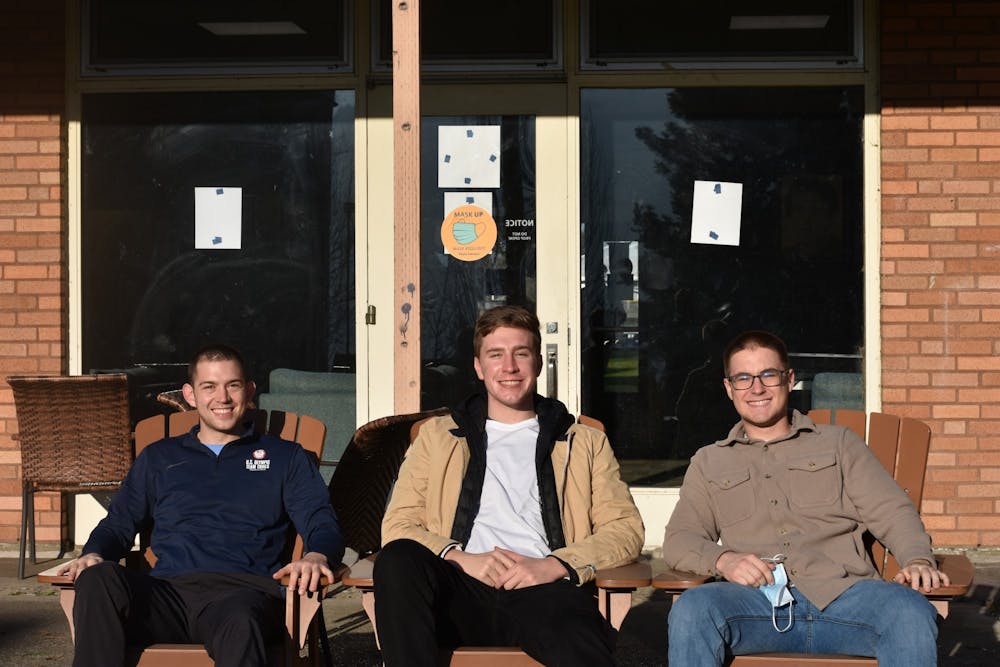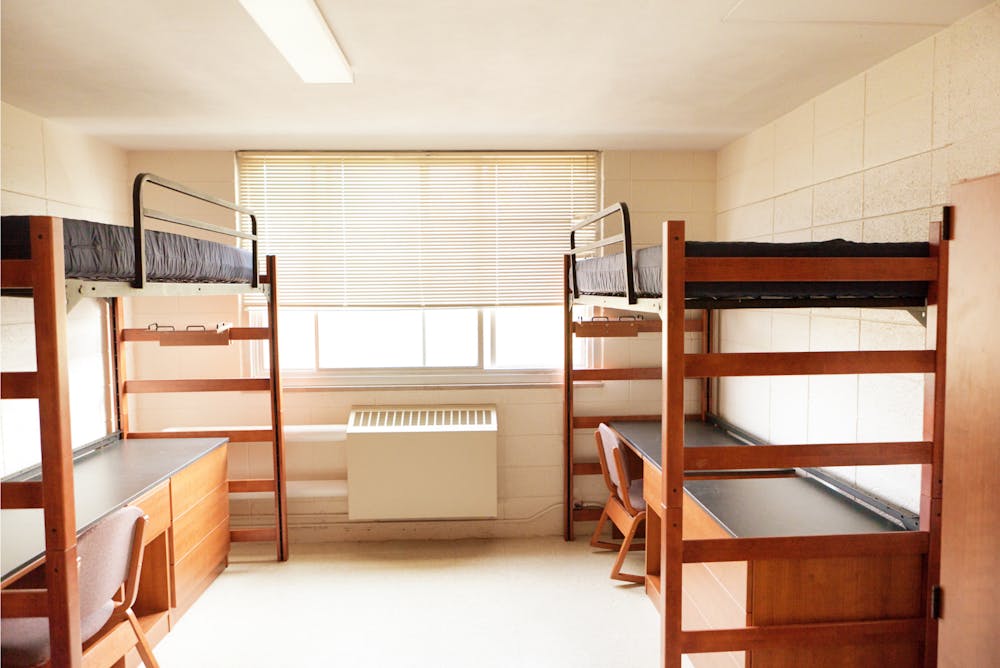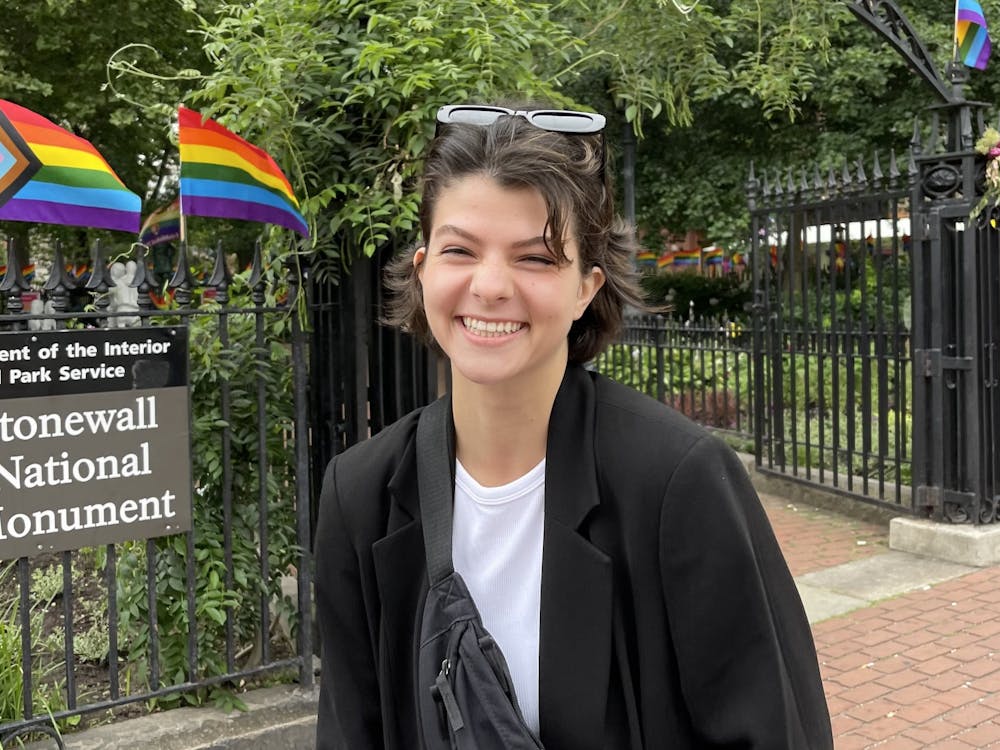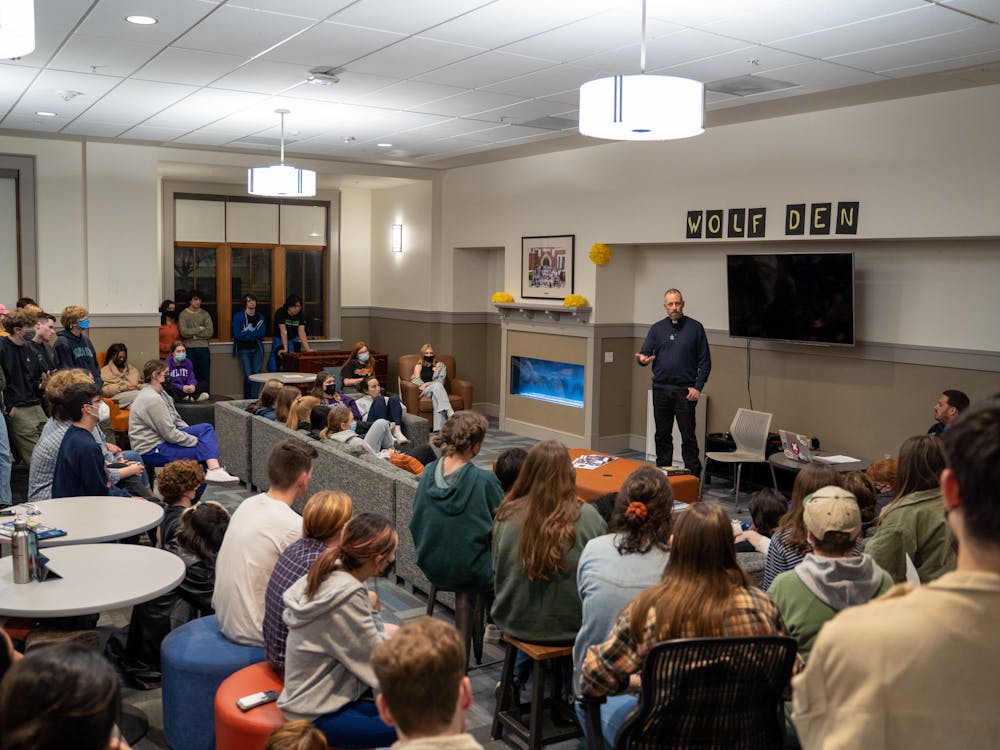Whether it be making nightly rounds, building community for new students, providing emotional support or anything in between, being a Resident Assistant (RA) is a difficult job in any given year.
The COVID-19 pandemic and associated problems such as staffing issues have made nearly everything harder. School, work and maintaining a social life are all aspects of life that are now more complicated. The same goes for RAs.
RAs reported experiencing a lack of support, challenges with the mental health struggles of students and a meal plan that is insufficient for many.
Lund Family Hall RA Daniel Mesquiti sent a survey about meal points to all the RAs, many of whom said the meal plan was insufficient. He sent another survey asking RA's about other concerns.

“I was curious about what people were experiencing with meal plans so I created a survey just to see where people were at and that revealed a little bit more frustration amongst the RAs on campus than I originally thought there was,” Mesquiti said.
Out of 43 responses, 55.8% of RAs said they were not on track for their meal plans to last until the end of the semester because they have too few points.
Problems with the meal plan are especially stressful for RAs who considered finances as a factor in applying for the job.
“Money was also a factor… Res Life covers for the job payments for room and then also meal plan three,” Corrado RA Grace Mariano said. “So doing that really alleviated the debt that I was accumulating, which is awesome.”
RAs are compensated with room, board and meal plan three — $2,200 per semester — which amounts to $16,330 for the 33 week commitment, according to Office of Residence Life Director Andrew Weingarten.
“We get covered for meal plan three which is different for everybody, but I know it doesn’t meet my needs always, just because I’m on campus all the time because of my job,” Mariano said.

Grace Mariano is a senior nursing major and RA in Corrado Hall.
Weingarten responded to these concerns in an email to The Beacon.
“One of the things I’ve spent a bit of time on this year is analyzing actual data from Bon Appetit to make sure the meal plan generally works well and provides for everyone,” Weingarten said. “Everyone uses it differently. I’ve helped a handful of folks troubleshoot and identify ways to get more out of the plan if/when they’d like.”
According to UP’s website, meal plan three “is designed for students who rarely miss meals and who will often grab coffee or a snack between classes... covering approximately three meals per day during the week and four meals in total over the weekend (typically brunch and dinner).”
If one spends $9.00 per meal — meal prices at Bauccio Commons and the Pilot house are typically above $10.00 — for three meals every weekday and two every weekend they would spend $2,565, $365 more than meal plan three covers for the 15-week semester. This does not include any spending at Mack’s Market, on beverages or over breaks.
RAs have also been dealing with mental health struggles on the rise among residents, Mehling Hall RA Torie Tonelli said.
“It’s not all sunshine,” Villa Maria Hall RA Quinn Burdick said. “There’s a lot of emotions that go into the job as well. Specifically around the residents’ mental health. There’s been a lot of my residents who have struggled with that.”
Mental health concerns among students have been observed to greatly increase during the COVID-19 pandemic. RAs are students at the end of the day, and have to deal with their own struggles as well.
Last semester there was an RA support group through the Health and Counseling center to provide more support for RAs, Kenna Hall RA Kaylee DeLoye said.
Another challenge RAs are facing this year is communicating with senior staff and the Office of Residence Life.
“There have been times where I’ve kind of struggled with needing more communication or wanting more support in certain areas and not feeling like we’ve had it, '' DeLoye said. “But I think you have that in any role or job that you’re part of.”
Residence Life has had to adapt with the times, and much of the way they used to do their work has changed since the pandemic.
“What is different is the world we’re in today and its impact on our work,” Weingarten said. “We have things like the pandemic that impact the lives and experiences of college students in a big way. This means the work of anyone who works to care for and support students has changed. It is often harder and more emotional.”
Meetings between RAs and the Office of Residence Life to address concerns among RAs did not yield the results the RAs had hoped for.
“I think the RAs have had to do a lot more advocation for themselves than they normally do and that they should do, and that’s regarding the support that we receive and the jobs we do and the compensation that we receive,” Mesquiti said.
In response to concerns, the Office of Residence Life is taking time to listen to what the RAs are going through.
“I spend a lot of time listening to folks and hearing them out,” Weingarten said. “The tricky thing is that it doesn’t always mean I can say yes or that I will agree or share the same thinking. I have noticed in the world right now that it can be harder to see and understand these instances where someone like me might not always say yes but will still provide time, patience, support, care, and other problem-solving. In my eyes, some of these very conversations and instances are examples of some of the awesome professional growth and development opportunities that tend to come from the RA position.”
Another concern affecting RAs is cultivating and maintaining a sense of community across campus and in the dorms.
Due to COVID-19 protocols, it has been more difficult to hold events with large groups of students. Despite these challenges, RAs have found ways to continue community building.
These community-building events included making gifts for hall buddies in Corrado, holding a Kenna Hall prom in the Mehling Hall ballroom and continuing Sunday Night at the Races outside Villa Maria Hall.
Even with parts of the experience they wish they could change, RAs generally say they would take this position again.
“There’s a lot that goes into the job that’s not fun, but the stuff that is fun, makes it ten times worth it,” Burdick said.

RAs share that one of their favorite parts about the experience is how rewarding the job can be.
“When I look back on it, watching other students grow and seeing them from their first time on campus… all the way to finding their friend groups and what they want to get involved in and grow and become leaders themselves is always super fulfilling,” DeLoye said.
In addition to watching their residents grow, RAs also get to watch themselves grow through the position and as people.
“Having to give advice and also talk with residents about roommate conflicts has been unexpectedly tough for me, but I’ve grown so much,” Mariano said. “I’ve learned so much about what is the best way for me to approach things and what works well. I don’t think I really expected to learn as much about myself as I did.”
Through building community as a hall and on a more individual resident level, RAs get to live in and experience the dorm halls they love the most.
“It’s like we’re borderline obsessed about our halls, like we are too involved in some ways,” Burdick said. “But it’s what I love to do, it’s fun.”
Editors note: This story has been updated to report there were two surveys of RAs.
Laura Heffernan is a reporter for The Beacon. She can be reached at hefferna23@up.edu.








